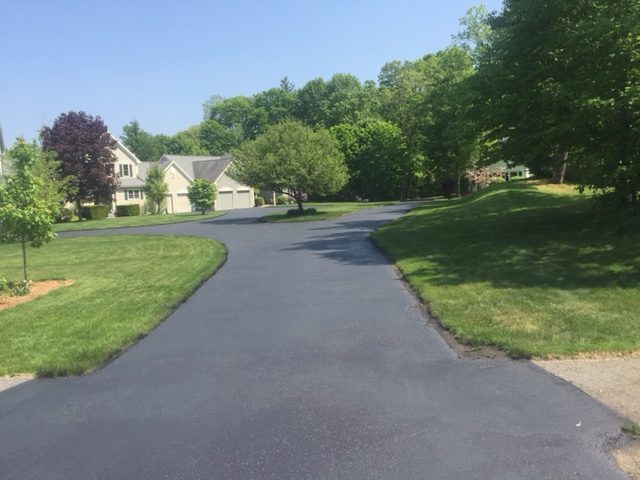Boost Pavement Performance: Cold Mix Asphalt Sealing Tips
Boost Pavement Performance: Cold Mix Asphalt Sealing Tips
Blog Article
Cold Mix Asphalt Vs. Hot Mix Asphalt: Which Is Right for You?

Composition Differences
Cold mix asphalt is generated by emulsifying the asphalt binder with water and an emulsifying representative before mixing it with accumulation. The warm mix asphalt manufacturing procedure includes heating up the aggregate and asphalt binder independently prior to combining them at the asphalt plant.
Furthermore, chilly mix asphalt has a tendency to be less dense and much more flexible than warm mix asphalt. This versatility makes it far better fit for locations with higher levels of activity, such as driveways or roads with heavy web traffic. On the other hand, hot mix asphalt is understood for its high toughness and resistance to rutting and fracturing, making it a recommended choice for freeways and high-traffic roads where longevity is important.
Installation Process Variations
The procedure of mounting chilly mix and hot mix asphalt exhibits remarkable variances in their procedures and requirements. In comparison, warm mix asphalt necessitates an extra sophisticated installation procedure. Due to the home heating needs, hot mix asphalt setups are normally lugged out by specialists with specialized tools, making certain a much more structurally audio and long-term outcome.
Longevity and Durability Factors
When considering asphalt alternatives, longevity and longevity are crucial factors to review for lasting sidewalk performance. Hot mix asphalt (HMA) is known for its outstanding durability and longevity.
In terms of long life, HMA normally outperforms CMA because of its remarkable toughness and resistance properties. HMA pavements have a longer service life, requiring much less frequent repair work and maintenance, which can equate to cost financial savings in the future. Furthermore, HMA sidewalks are extra quickly personalized to meet certain task needs, further improving their longevity.
Price Factors To Consider
Taking more tips here into consideration the economic effects is an important facet when reviewing the selection between hot mix asphalt (HMA) and cool mix asphalt (CMA) for pavement tasks. While the preliminary price of hot mix asphalt is usually greater than that of cold mix asphalt, HMA usually offers a more cost-efficient option in the lengthy run due to its premium sturdiness and longevity.
Along with material prices, it's vital to think about the expenditures related to installation and maintenance when comparing HMA and CMA. HMA typically calls for specific tools and experienced labor for correct setup, which can affect total job expenses. Alternatively, CMA is easier to function with and can commonly be applied using less complex strategies, potentially decreasing installation costs. Ultimately, the decision in between HMA and CMA need to take into consideration not simply the initial cost however likewise the long-lasting financial effects to identify one of the most cost-effective option for the certain sidewalk task.
Environmental Effect Comparison
Comparison of the ecological influences between warm mix asphalt (HMA) and cool mix asphalt (CMA) discloses unique differences in sustainability methods. HMA production calls for high temperatures, leading to boosted energy usage and greenhouse gas emissions.
Additionally, the usage of CMA frequently entails reusing existing asphalt pavement, advertising source conservation and reducing the amount of waste sent out to landfills. By opting for CMA over HMA, roadway construction projects can contribute positively to environmental conservation initiatives.
Conclusion
Finally, the choice in between chilly mix asphalt (CMA) and warm mix asphalt (HMA) relies on numerous variables such as composition, installment process, durability, long life, expense, and environmental influence. asphalt repair. While CMA supplies a quick and economical solution for minor repair work, HMA makes certain exceptional toughness and durability for rush hour areas. Take into consideration these variables carefully to identify which kind of asphalt is the ideal choice for your paving needs

Taking into consideration the financial implications is a vital facet when reviewing the selection in between hot mix asphalt (HMA) and chilly mix asphalt (CMA) for pavement projects. While the preliminary price of warm mix asphalt is normally higher than that of cool mix asphalt, HMA typically provides an extra cost-efficient remedy in the long run due to its premium toughness and longevity. cold mix asphalt.Contrast of the view ecological effects between warm mix asphalt (HMA) and chilly mix asphalt (CMA) reveals distinctive differences in sustainability practices.In final thought, the selection between cool mix asphalt (CMA) and hot mix asphalt (HMA) depends on numerous factors such as composition, installment procedure, durability, longevity, price, and environmental effect
Report this page